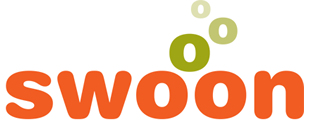As the job market becomes increasingly competitive, building a strong employer brand is essential for Australian companies looking to attract and retain top talent. Your employer brand is your reputation as an employer and how you are perceived by job seekers and employees.
As the saying goes, “People don’t quit jobs; they quit bosses.” So creating an environment that emphasises culture, experience, and advocacy results in great bosses…and, therefore, better retention and reputation with employees.
We’ll cover 4 tips for Australian companies on how to build a strong employer brand.
1. Define Your Values and Culture
The first step is to define your values and culture. Your values and culture are what set your company apart and create a sense of identity. They also serve as a guide for how you treat your employees and interact with your customers.
As author and business leader Simon Sinek says, “If we expect people to live the core values of an organisation, we have to be able to tell them what those values look like in action.” It’s not enough just to have values; leaders need to define how employees and customers know what living those values really looks like.
As a company, it’s important to take the time to clearly define your values and culture and then communicate them consistently through your job postings, social media, and other marketing channels.
2. Create a Positive Candidate Experience
Another important aspect of building a strong employer brand is creating a positive candidate experience. This includes everything from your job postings to your interview process. Here are some specific examples of how to improve your candidate experience:
- Communicate clearly and promptly: Communicate with candidates clearly and promptly throughout the hiring process. This means setting clear expectations and timelines for each step of the process and following up with candidates promptly after interviews.
- Make the application process easy: Make the application process as easy as possible for candidates. This means having a user-friendly online application system and minimizing the number of steps required to apply.
- Provide feedback: Provide candidates with feedback on their applications or interview. Even if the candidate is not selected, providing constructive feedback can help them improve for future job opportunities.
- Be respectful of candidates’ time: Be respectful of candidates’ time throughout the hiring process. This means being punctual for interviews and minimizing the number of interviews required.
- Showcase company culture: Showcase your company culture throughout the hiring process. This can include providing information about the company’s values, mission, and vision and providing candidates with opportunities to meet and interact with current employees.
- Be transparent: Be transparent with candidates about the hiring process, job expectations, and company culture. This includes providing information about salary and benefits.
- Personalize the experience: Personalize the candidate experience by addressing candidates by name and providing personalized communication throughout the hiring process.
3. Emphasize Your Employee Benefits
Employee benefits are a crucial part of building a strong employer brand. In Australia, employees have come to expect certain benefits, such as paid time off, healthcare, and retirement plans. The bare minimum won’t cut it when you’re trying to build a strong employer brand. Consider offering additional benefits that set you apart from your competitors, such as:
- Flexible work arrangements: offering flexible work arrangements such as remote work, flex-time, or compressed workweeks is a key way to attract top talent as it helps employees to balance their work and personal lives.
- Professional development opportunities: training programs, mentorship, or tuition reimbursement can help employees develop new skills, advance their careers, and feel more engaged in their work.
- Wellness programs: Employers can offer wellness programs such as gym memberships, fitness classes, or mental health resources to help employees stay healthy, reduce stress, and improve their overall well-being.
- Employee recognition programs: bonuses, awards, or public recognition for a job well done are a great way to help employees feel valued and appreciated for their contributions to the company.
- Volunteer time off: Employers can offer volunteer time off, which allows employees to take time off from work to volunteer for a cause they care about. The community connection helps improve their overall well-being.
- Family-friendly benefits: family-friendly benefits such as parental leave, childcare assistance, or adoption assistance can greatly benefit employees and is becoming more important to many job seekers.
4. Encourage Employee Advocacy
Finally, encourage your employees to advocate for your company. Your employees are your best ambassadors and can help spread the word about your company culture and values. Encourage them to share their experiences on social media and review sites, and consider implementing an employee referral program.
As author and CMO Pooja Agnihotri writes, “If you want to keep your customers happy, start by keeping your employees happy.” When your employees are happy and engaged, they will be more likely to promote your company to others and take more care in doing their jobs well.
The bottom line is that in order to attract and retain top talent, a strong employer brand is essential. While your employer brand is a long-term investment that requires consistent effort and attention, the rewards are worth it.

